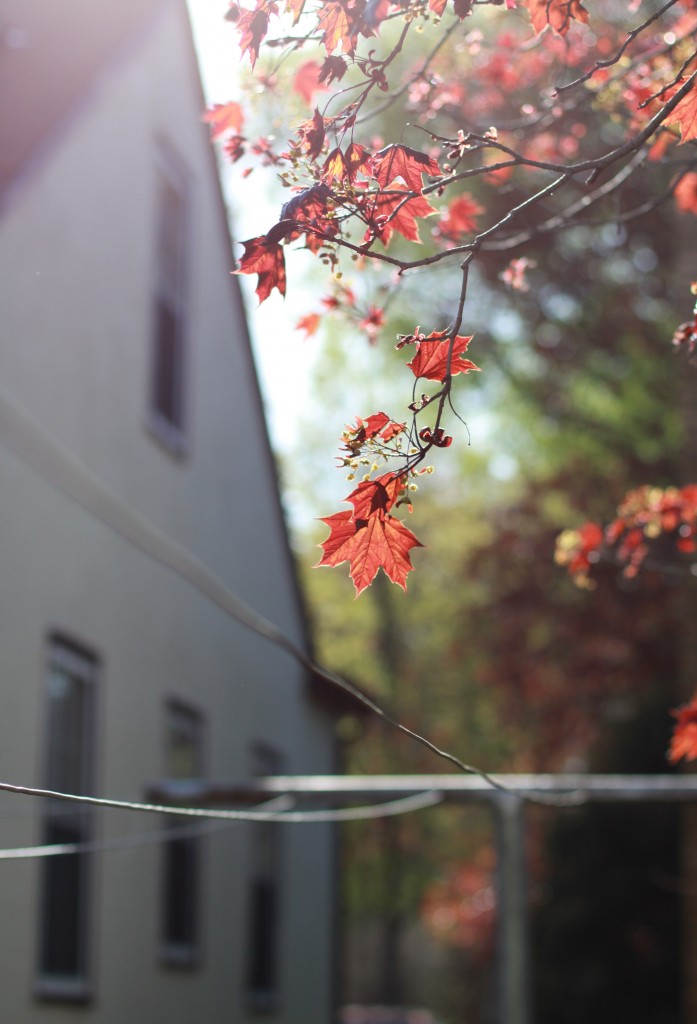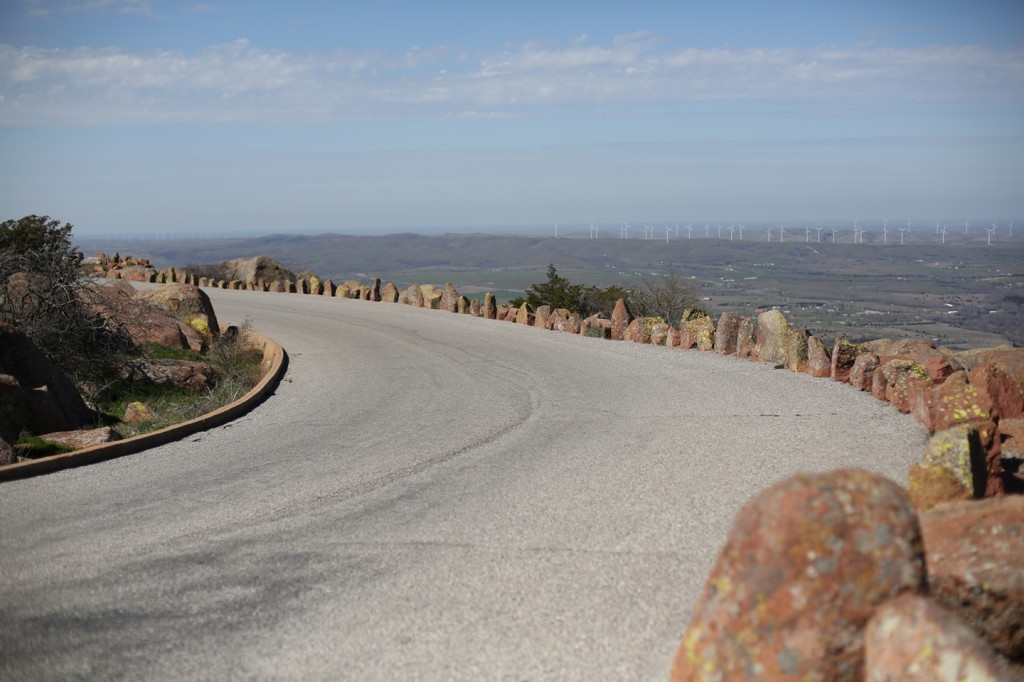
By Karen Dempsey
We’re climbing the hill where I used to search for arrowheads. But we are in the car. It is night, dark. And we can see only the small patches of road illuminated by our headlights. My father is driving and he knows the turns from memory. In preparing for this trip, I’ve tried to piece together a patchwork of my own memories, to create a full picture of this place, whole. Now, in the pure, expansive darkness, the absence of sound except for gravel crunching beneath our tires, I recall a vivid picture of the farm of my childhood.
We pause outside the car for a moment, breathing in the darkness. I look up for the ceiling of stars I once tried to memorize as I lay on my back on this ground until my mother called me in for bed. But tonight the stars are hidden. Years have passed since I last came to my granduncle Joe’s farm. It is more than the place of my memory, more than the place of my imagination. Yet the hole takes up the most space. I have avoided seeing this place again because I would prefer to remember it instead, to preserve my pictures of it from before the fire. But Uncle Joe is here, in the last years of his life. For him, being here is too hard and leaving is too hard, so he moves restlessly back and forth between this place and Lucy’s, the neighbor down the hill.
•••
He’s at Lucy’s now, and we make our way toward the new house where we’ll spend the night without him. The porch is a tiny cement platform and we crowd on, waiting as my father searches for the right key and works it into the new lock. The old house, we never locked. It had an old screen door that banged, a huge, wide porch that wrapped around the house, torn screens that failed to keep out the bugs. Dad turns the knob, and we move into the small, new kitchen.
This is a house of plastic and vinyl, of fresh-painted walls and furniture donated by neighbors or purchased by my father from a failed hotel. The flypaper is missing from the kitchen. The woodstove is old and beautiful but dwarfed by the imposing one of my memory, the one with the big pot of soup simmering on top. We light the stove to warm ourselves. The burning wood cannot erase the invasive smells of pre-fab modernity that have displaced the smells I remember most. The smell of my Uncle Joe’s pipe. The smell of old books lining the walls and stacked on tables. Of hay from the barn and my brothers’ fresh-caught fish. Those smells settled into you when you arrived and clung to you when you drove away, after two weeks of satisfying long days, in the wood-paneled station wagon with your three brothers and three sisters and your still-married parents.
The new house is tiny; there’s not a lot to see. And it’s late. So, soon, my father carefully extinguishes the fire in the stove and we turn in, my father in one small bedroom, the four of us—my sister Megan and me and our boyfriends—wrapped in blankets and sleeping bags on the cold floor of the other.
The house of my memory is an enormous collection of narrow rooms and doorways: small, comforting spaces. Megan and I slept in the first bedroom at the top of the stairs. She once slid off our bed in the night, when she was about two years old. She fell into the space between the bed and the wall without ever waking. They searched every room for her, only to find her still there tucked just out of sight, in that small space, asleep. I slept through their looking and I remember only the telling of it, but I can see her there, curled up and dreaming.
Uncle Joe’s voice wakes me in the morning. His voice is the same (even now, I can hear him still, saying my name) and I go out to receive his strong, familiar hug. His arms and hands have healed. He burned them throwing water onto the fire, trying to save the house that he’d lived in for more than ninety years. I had imagined a black scar in the landscape to mark its loss, but instead there is just this house. He calls it the little house, as if there is a need to distinguish it from the other, as if the other is still here.
We leave my Uncle Joe at the house to walk the hill with my father, and my father talks about his great-grandparents, the Brennans, of the house they built further up the hill, and the other, the house of my memory, built later for their daughter’s family. From the hill I take pictures of the farm—the sheds and tractor, the barn, all unchanged, the garden, much smaller now and closer to the house.
•••
In the afternoons of my childhood summer visits, Uncle Joe would walk me down the hill to the mailbox. The mailman raised a little flag on the box when he’d left a letter, addressed simply to “Joseph McEneany, New Albany PA.” I wrote Uncle Joe later, from home, just to hold that image of him releasing the flag, opening the box to a crisp white envelope marked with two simple and true lines in my own practiced printing.
As we walked back up from the mailbox one day, Uncle Joe stopped to survey the rocky ground.
“I sometimes find arrowheads out here,” he said.
It was a new word for me, arrowhead, and he described stones worn into smooth arrows for hunting and protection by the people who’d lived on this land long before. I followed him into the house then and he reached back on a shelf in the kitchen, drew out his collection of four or five found stones, and showed each of them to me, pressing their smoothness into my palm. I imagined them bound to sticks chosen for their weight and swiftness. I remember that I felt a grave longing to keep one of those arrowheads, to carry away with me its slight weight, its endurance through time, but I studied them and then handed them back, one by one.
Back in the new kitchen now, Uncle Joe instructs me to pick a zucchini from the garden, a big one, then he follows me out there to tease me about choosing the right one. His laugh is a familiar comfort. At home I have a picture, taken about twenty years before this visit. I’m running alongside my Uncle Joe, away from the camera. He doesn’t yet carry a cane but his walk is stooped. He carries a metal bucket, filled, I remember, with potatoes we have dug from the garden. I’d knelt beside him in the dirt, rooting for the things he’d planted there beneath the surface.
We slice the zucchini into slender green wheels and grill it in butter and salt on the stove. And Uncle Joe talks. His jokes and stories are familiar, reminiscent of other visits. But I’m most conscious of his missing pipe. He must feel its absence, too, enough that he needs to acknowledge it.
“I don’t smoke my pipe any more. Not after the fire,” he says, and stops there, without talking about the ash from the stove smoldering beside the house, or the sight of the flames swallowing it. He complains only about new doorframes, misaligned. He does not talk about the old house.
•••
This is my last visit to the farm with Uncle Joe, and we both know this, I think, when he asks us all to stay a little longer. We drive him to Lucy’s house and dawdle there, until it is time to take our leave and begin the drive back. Joe fidgets about Lucy’s house, distracted. He does not linger over the final goodbye.
A couple of years after this last visit, I will pull out the photos from this trip to bring to Uncle Joe as he is dying. But on the long drive to the nursing home I will remember suddenly, startlingly, that he has gone mostly blind, so I will have to describe them. And I do this, although he has lost consciousness by the time I arrive.
The photos are crisp, vibrant. I took only one of the little house. With the others, I maneuvered the lens to try and cut it from view, but the house creeps in, corners of it, to disturb the past.
•••
KAREN DEMPSEY lives in Cambridge, Massachusetts, with her family. She has written for publications including the New York Times Motherlode, Babble, and Brain, Child. This is her third essay for Full Grown People. Follow her @karenedempsey or read her work at kdempseycreative.com.

 Follow
Follow

